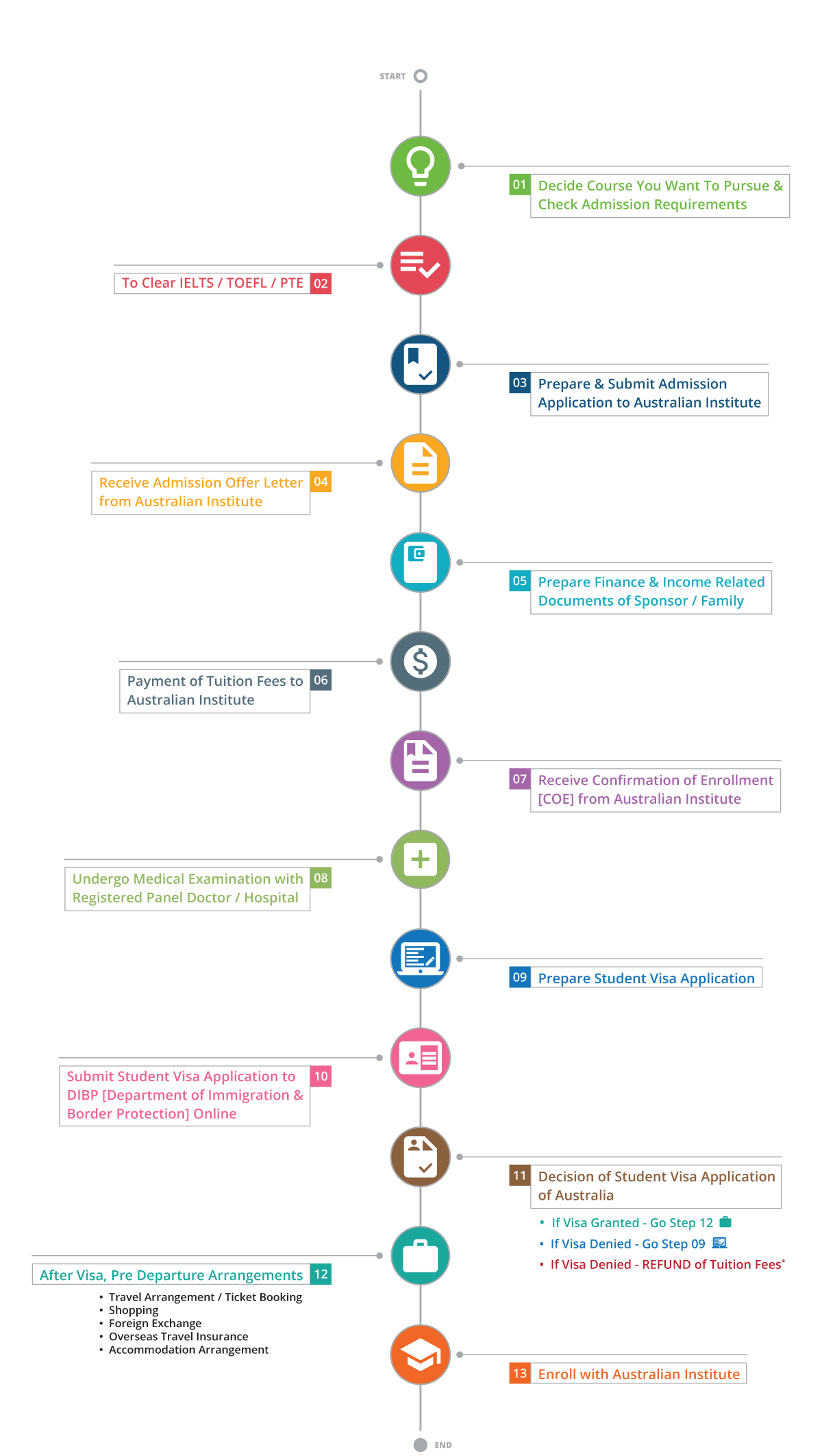INTRODUCTION
Australia’s education system reflects quality, excellence, and innovation.
Its universities offer excellent infrastructure and facilities to students,
both domestic and overseas. There is a wide range of specialist
institutions, and the most popular study programs include Business,
Information Technology, Engineering, and Hospitality.
Very popular amongst Indian students as a destination for study abroad,
Australia is consistently voted one of the best places to live. It is a
young, vibrant, and friendly country with a reputation for great weather and
outdoor pursuits. It also benefits from a high standard of living and low
cost, making it attractive to foreign students.
Australia Education System
SCHOOL SYSTEM
School education is similar across Australia with only minor variations
between States and Territories.
School education is of 13 years and divided into:
Primary School: Kindergarten to Grade 6 or 7
Secondary School: Grade 7 to 10 or Grade 8 to 10
Senior Secondary School or College: Grade 11 and 12
TERTIARY EDUCATION
Tertiary education includes both higher education (including universities) and vocational education and training (VET).
AUSTRALIAN QUALIFICATIONS FRAMEWORK
The Australian Qualifications Framework (AQF) specifies the standards for educational qualifications in Australia. It is administered nationally by the Australian Government’s Department of Industry, with oversight from the States and Territories, through the Standing Council of Tertiary Education Skills and Employment. The AQF has 10 levels and links school, vocational and university education qualifications into one national system. This allows one to move easily from one level of study to the next, and from one institution to another. It allows for choice and flexibility in career planning. All qualifications in the AQF help prepare one for both further study and working life.
Level1: Certificate I [Non-TER]
Graduates at this level will have knowledge and skills for initial work,
community involvement and/or further learning.
Level 2: Certificate II [ Non-TER]
Graduates at this level will have knowledge and skills for work in a defined
context and/or further learning.
Level 3: Certificate III [ 6 Months]
Graduates at this level will have theoretical and practical knowledge and
skills for work and/or further learning.
Level 4: Certificate IV [ 1 Year]
Graduates at this level will have theoretical and practical knowledge and
skills for specialized and/or skilled work and/or further learning.
Level 5: Diploma [ 1 to 2 Years]
Graduates at this level will have specialized knowledge and skills for
skilled/paraprofessional work and/or further learning.
Level 6: Advanced Diploma / Associate Degree [ 1.5 to 2
Years]
Graduates at this level will have specialized knowledge and skills for
skilled/paraprofessional work and/or further learning.
Level 7: Bachelor Degree [ 3 to 4 Years]
Graduates at this level will have broad and coherent knowledge and skills
for professional work and/or further learning.
Level 8: Bachelor Honors Degree / Graduate Certificate / Graduate
Diploma [ 6 Months to 1 Year]
Graduates at this level will have advanced knowledge and skills for
professional/highly skilled work and/or further learning.
Level 9: Master Degree [ Course Work / Research / Extended] [ 1 to 2
Years]
Graduates at this level will have advanced knowledge and skills for
professional/highly skilled work and/or further learning.
Level 10: Doctoral Degree [ 3 to 4 Years]
Graduates at this level will have systematic and critical understanding of a
complex field of learning and specialized research skills for the
advancement of learning and/or for professional practice.
VISA PROCESS

